How Natalia spent her dream month in London for $400
Kindred house swaps made a working-from-home fantasy a reality.

My first few trips to London happened back in 2017. I was early in my career, broke, but full of wanderlust... a perfect storm for a couple of hilariously uncomfortable and chaotically memorable trips around Europe.
While pinching every penny to make my semester abroad happen, I stayed in grimy hostels, shared rooms with hundreds of (mostly lovely) strangers, and lived off meal deals. London was no exception.

Michelin-starred dinners and pricey tourist activities weren’t in the cards for me, but that didn’t faze me.
It turns out I got a real kick out of blending in with the locals, straying off the beaten path in search of the kind of authenticity you don’t find in a Top 10 list. I spent my short stints in the city (2–3 days at a time) hopping around different neighborhoods, exploring hole-in-the-wall bars, cafés, and little stores, and chasing moments that made me feel like a real Londoner.

As much as I loved that entire experience, I made a quiet promise to myself: one day, if the stars aligned, I’d come back and give London the time it deserved (and maybe, just maybe, I’d have a slightly more forgiving budget too).
And align they did.
From backpacker to digital nomad
Fast forward to 2023. I found myself with a blooming, fully remote career in tech, and a world of possibilities. My company has an office in London, and in April, I got the chance to work remotely from it for a few days. Then again a few months later. It was fun. It was nostalgic. But my god, it wasn’t nearly enough.
I knew I wanted to spend more time in the UK. A lot more. But without the safety net of a work-sponsored trip, I couldn’t figure out how to make it make sense. Every time I ran the numbers on platforms like Airbnb or Booking.com, I crash-landed back in reality.
I googled “affordable places to stay in London” more times than I can admit, and still came up short. A month in London just wasn’t financially justifiable for me. Even if I could swing it the old fashioned way (sticky floors, shared bathrooms, cardboard-feeling mattresses…) I didn’t want to. My twenties had caught up to me, and my back was begging for mercy.
A place to call my own wasn’t just a nice-to-have anymore. It was a non-negotiable. And that was putting a hard stop on my London dreams.
Then, in July 2023, I joined Kindred. And everything changed.
How house swapping changed the way I travel, and why I’m never going back
This wasn’t my first home exchange rodeo, but Kindred made it simpler, safer, and, honestly, way better than other house swap alternatives out there. Suddenly, the life I’d been daydreaming about — slow-traveling, working remotely from beautiful, cozy homes, and actually living in a city instead of rushing through it — felt doable. Not in a Pinterest mood board, ‘"maybe-one-day" kind of way, but in a real-life, “I could actually book this right now” way.
Kindred opened all the right doors for me, literally and figuratively.
Instead of dropping $4,000+ on a 30-night stay in London (which is what the math was looking like on Airbnb), I paid… $400*. That’s a 10x difference for a better, more comfortable, and much more authentic experience.
To date, I’ve hosted and travelled over 100 nights in beautifully decorated, astonishingly well located homes in Amsterdam, Berlin, Copenhagen, California, and more. I still have to pinch myself sometimes. It doesn’t feel real.
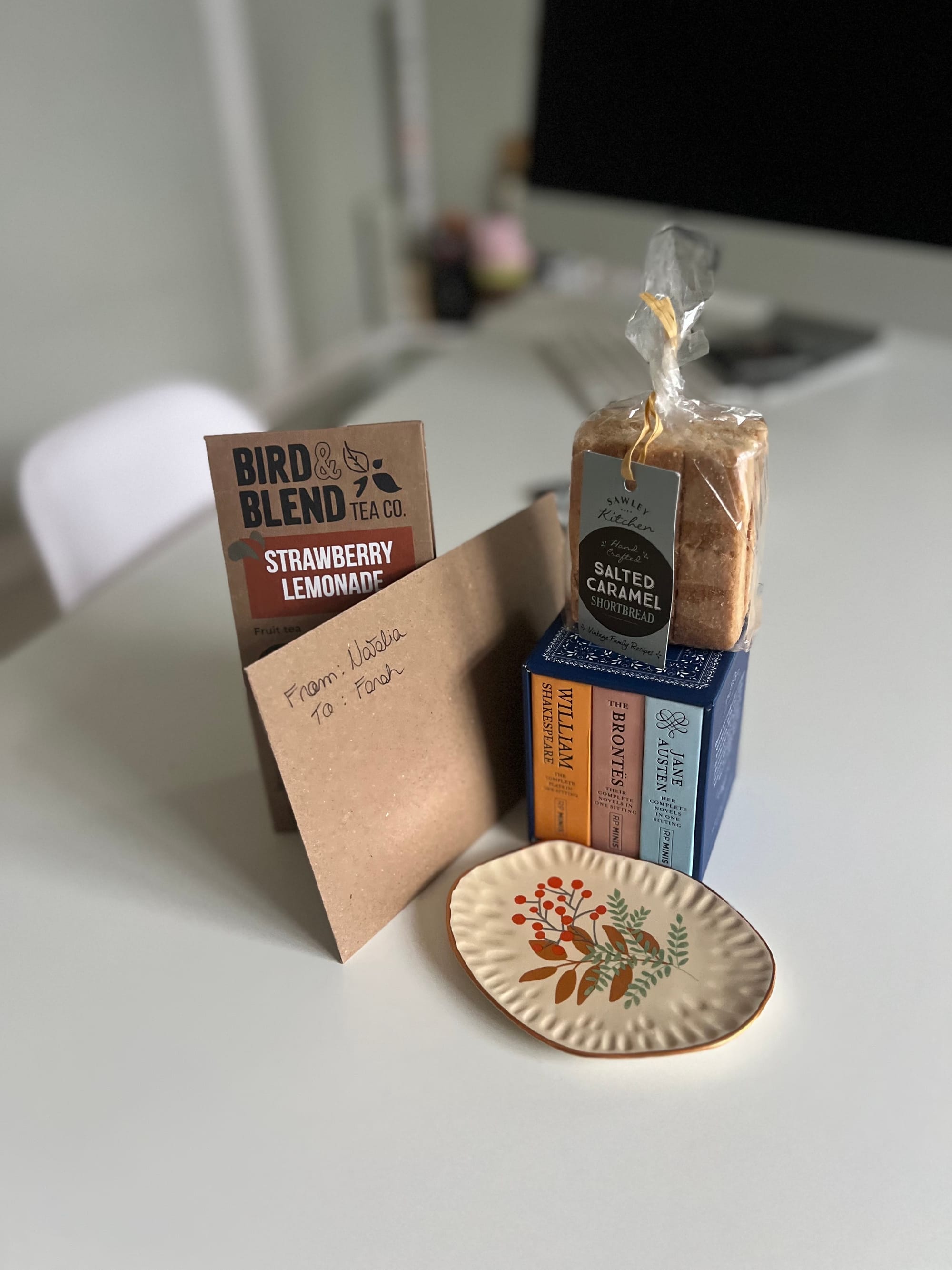
(Once I realized how big of a role house swapping through Kindred was going to play in my life, I became a Kindred Passport holder. That means no service fees after a one-time yearly membership payment. It’s hands down the single smartest money-saving decision I’ve made in my home swapping journey, and part of what made my month in London so affordable.)
My favorite house swap experiences in London (that cost next to nothing)
I’ve stayed in dreamy, massive homes in Notting Hill, Primrose Hill, and Islington… the kinds of neighborhoods I used to wander through on long walks or fantasize about when watching romcoms. And I never spent more than $400 for a month (or $200 for a few weeks).
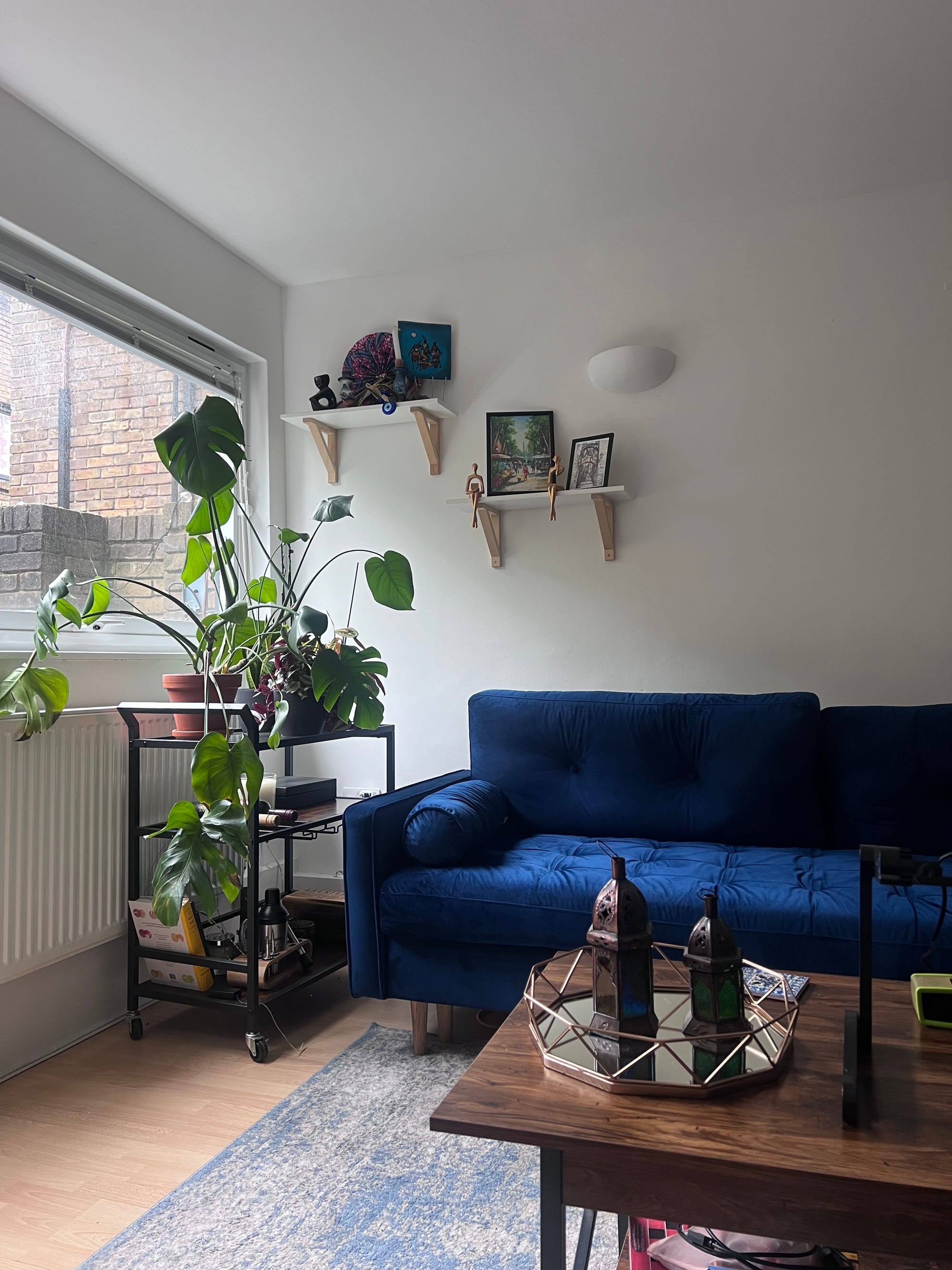
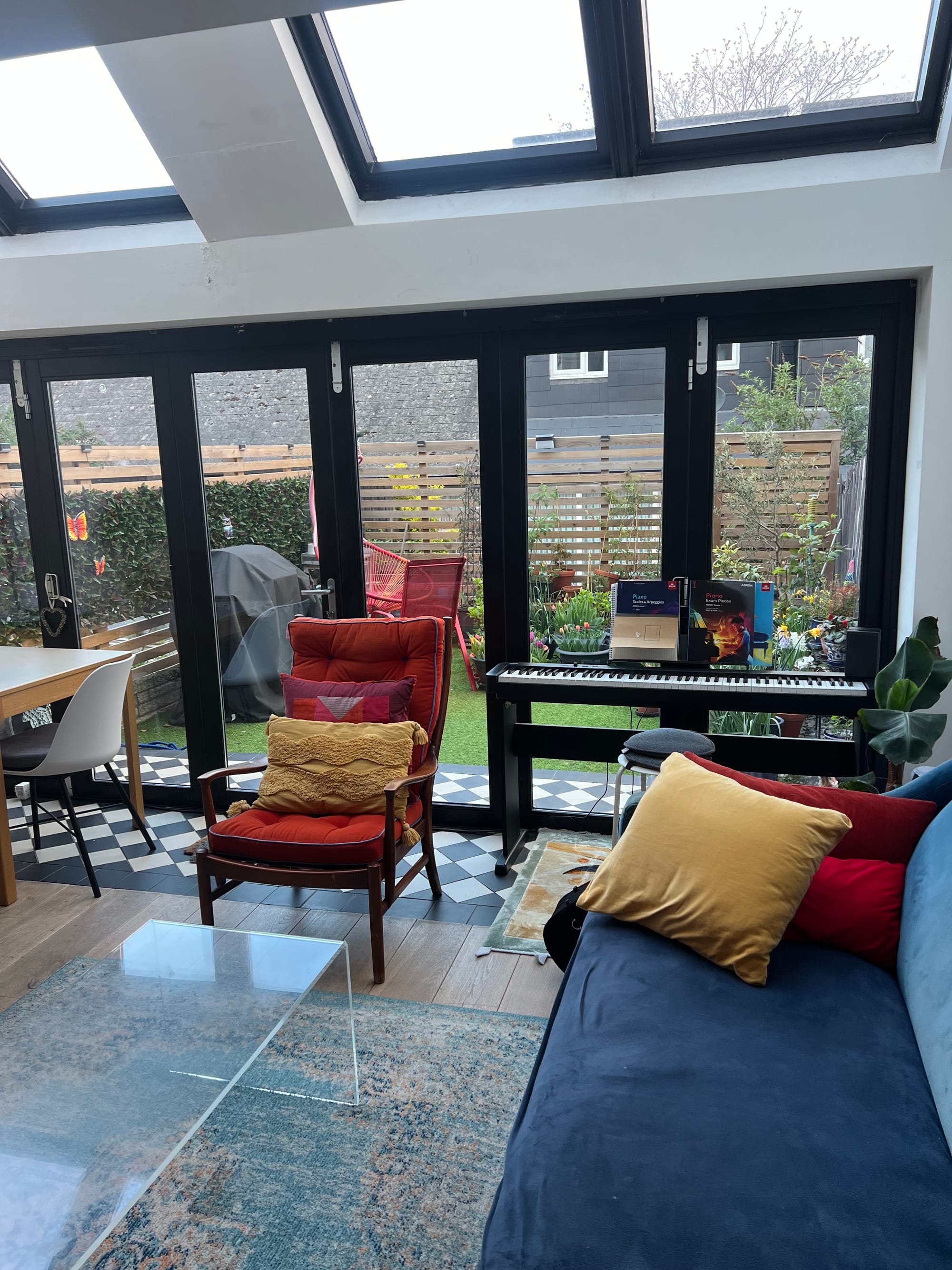
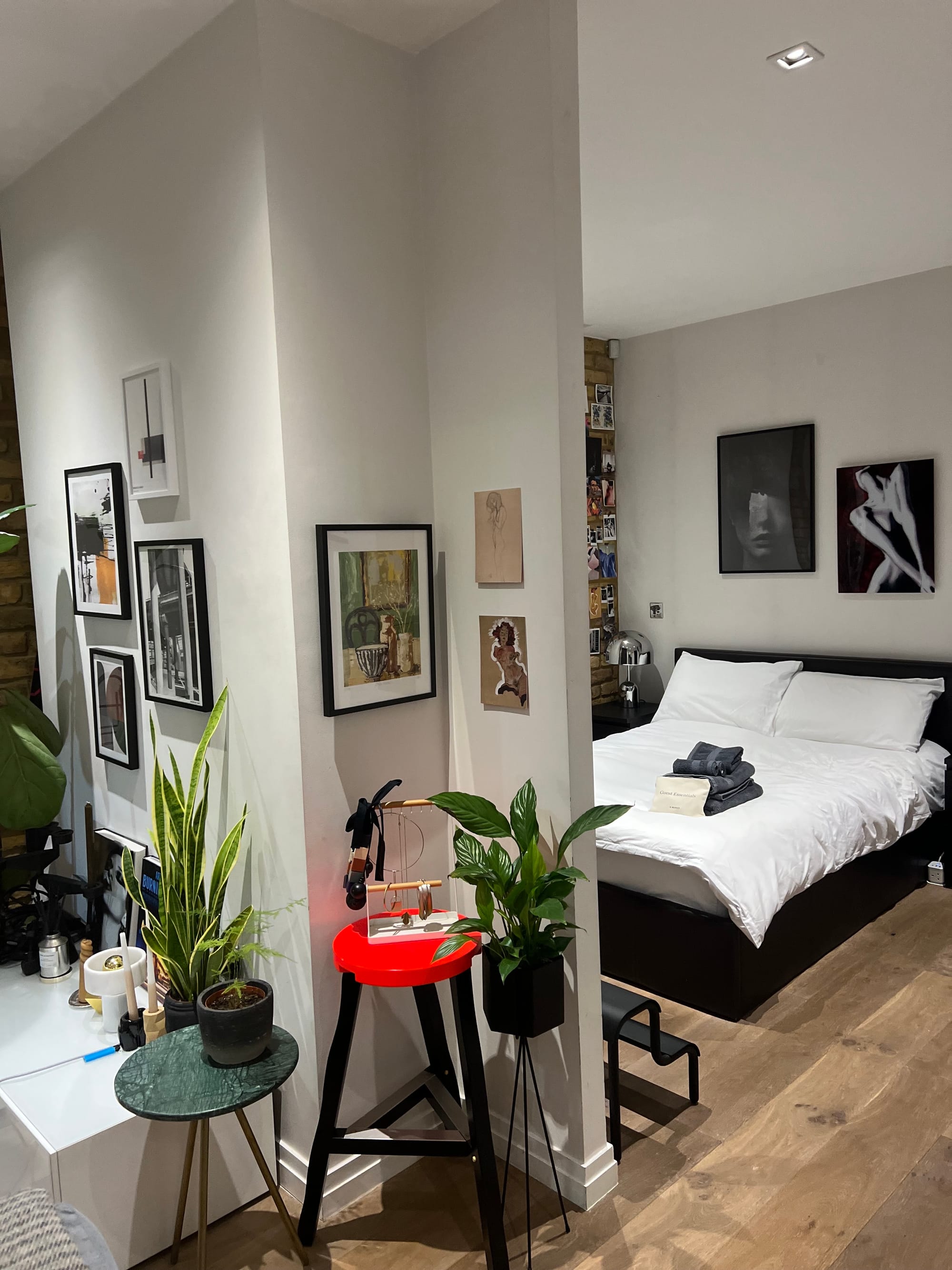
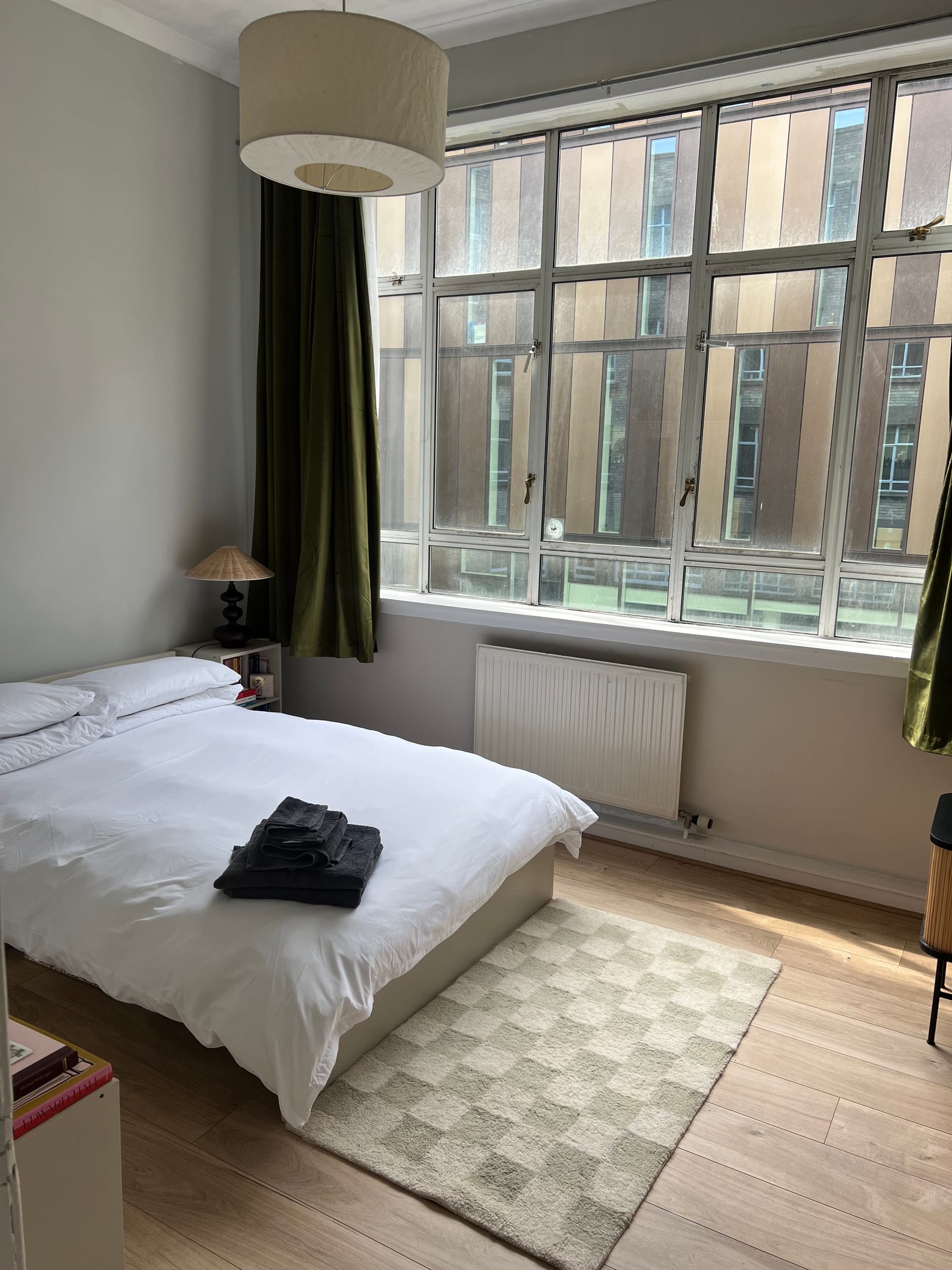
My highlight so far? Probably spending weeks living steps away from Portobello Market, browsing vintage shops and vinyl stands outside my door, and eating some of the best Brazilian food I’ve ever had. I loved that home so much I’ve stayed there twice. The vendors all recognize me now! London has officially become my home away from home, and that would never have been possible without the magic of house swapping.

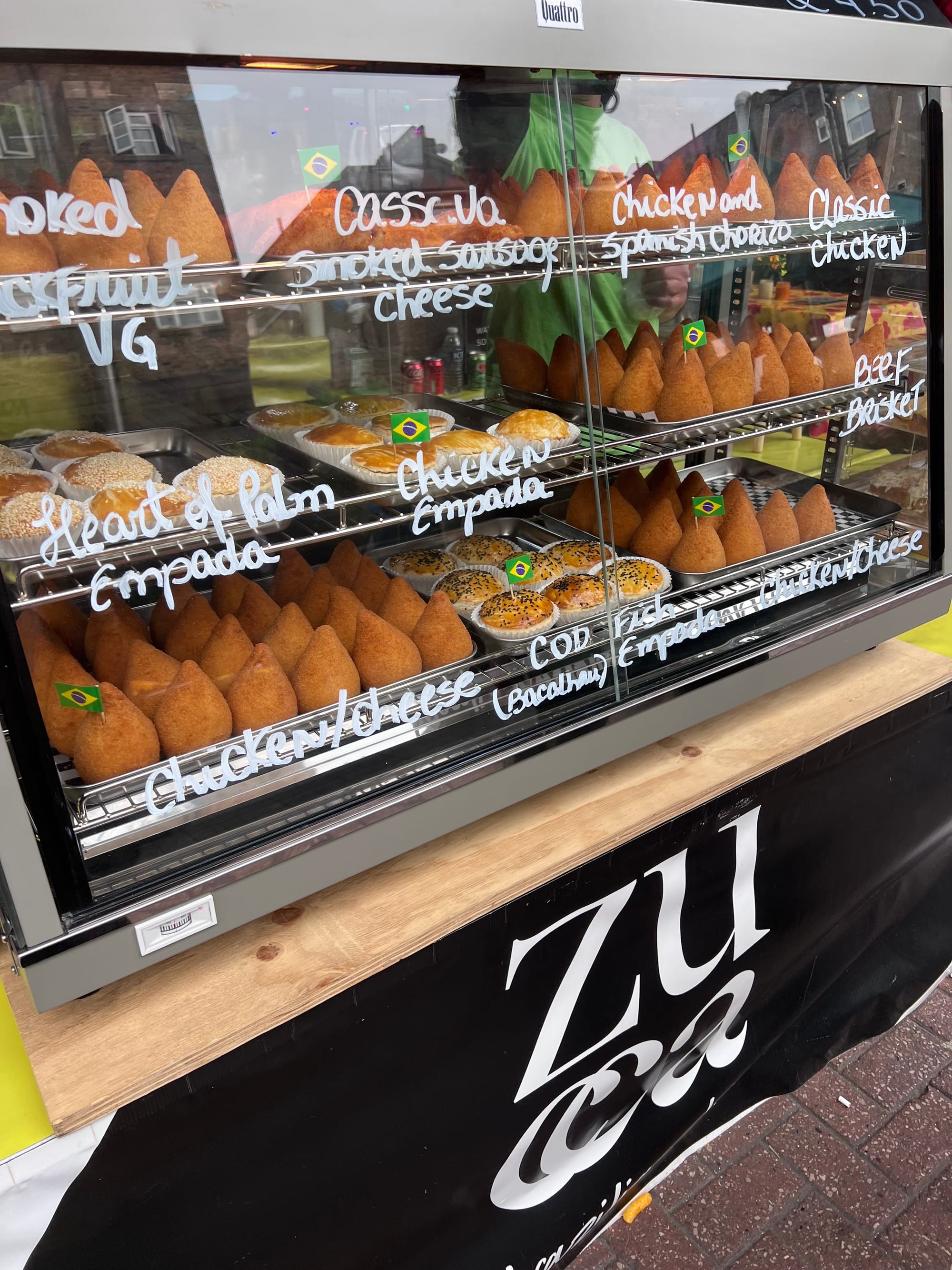
As I’m writing this, I’m already planning my next month-long stay in the city, keeping a hawk eye on my wish lists for the perfect summer match. And for once I’m not stressing about whether I can afford it. Because with Kindred, I already know I will.
And while the price point is unbeatable, it’s the community that really seals the deal for me.
What sets Kindred apart from a traditional London vacation home
When one of my flights landed too early before check-in, my host Juliet offered to stash my (absurdly oversized) luggage in her car and drop it off at the flat once it was ready. When I experienced a last-minute trip cancellation, my host Roberto extended his availability so I wouldn’t be left scrambling. When I booked a spontaneous Easter weekend trip to Edinburgh, Farah accepted my request within hours, saving me from wildly overpriced hotels (and a full-blown panic spiral, courtesy of my Type-A brain that hates last-minute anything).
These aren’t the landlords or property managers you’d expect in a London vacation rental. They’re not hotel staff. These are people who feel like neighbors and, often, like friends.
I genuinely adore piecing together who they are through the books on their shelves, the photos on the fridge, the mugs they left behind, and finding the perfect little goodbye gift to leave in return.
Is the money saving part important? Of course it is. My bank account sighs in relief every time I open Kindred instead of other accommodation platforms. But it’s these small, human moments that really set Kindred apart for me.
I’ve always been the kind of person who looks back at life in chapters. The turning points. The before-and-afters. The blink-and-you-miss-it moments that shift everything.
And diving into the world of house swapping, and becoming a Kindred member? That was one of them for me.
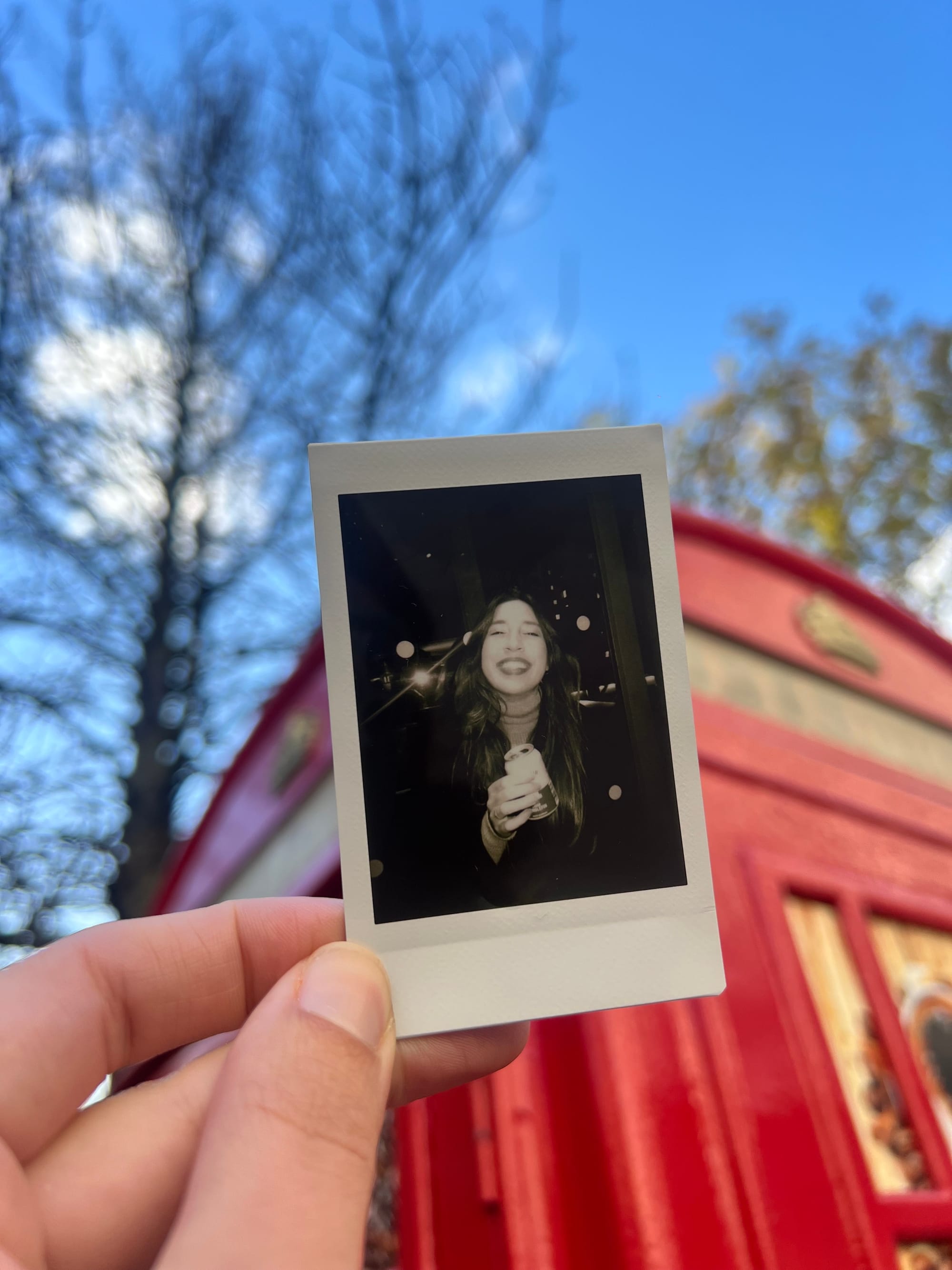
If you're reading this and thinking, Wait… I could totally do this, you absolutely can.
Whether you’re a seasoned home swapper or just house swap curious, here’s a quick FAQ to get you started with Kindred.
Q: How does Kindred work?
Kindred is a members-only house swapping platform that makes it easy to exchange homes with verified members around the world. You stay in someone’s home while they’re away, and they do the same in yours (but don’t worry; it doesn’t have to be at the same time!). Beyond 1-for-1 swaps, Kindred runs on a flexible credit system. You can earn credits when you’re available to host, then use those credits to stay in other members' homes later on.
Q: Do I have to pay to join Kindred?
Nope! Joining Kindred is 100% free. If you’re accepted, you’ll only pay a service fee and cleaning fee when you book a stay. There are no hidden charges or subscription fees (unless you opt into the Kindred Passport).
The Kindred Passport is a yearly membership for frequent swappers. For a one-time annual payment, you unlock unlimited trips with no service fees. If you’re planning more than two trips in a year, the Passport basically pays for itself. Frequent flyers and digital nomads, this one's for you!
Q: Can I house swap on Kindred if I rent, not own?
Yes! Lots of Kindred members are renters. You just need to check with your landlord or lease agreement. And don’t worry, you don’t need to own a penthouse or beach mansion to join. Kindred homes are about warmth, trust, and personality, not granite countertops or square footage.
Q: How do I earn credits on Kindred?
Newly accepted members start with 5 free credits (that’s 5 nights!) to try the platform. After that, you earn more credits by:
- Hosting fellow members in your home
- Referring friends who are accepted
- Adding availability when your place is empty
You can’t buy credits: Kindred is a “give to get” model. You give a night, you get a night.
Q: Is Kindred safe?
Yes. All members go through a screening and identity verification process before being accepted. Everyone hosts their own home, and you’ll always know who you’re swapping with. The Kindred team also provides 24/7 trip support, cleaning coordination, and host protection during every stay.
You’re never auto-matched or forced into accepting a stay. You can chat with guests (including scheduling a video call) and only confirm a stay when it feels right for both sides.
Q: Is Kindred cheaper than a hotel or short-term rental?
Yes, way cheaper, especially for trips lasting a week or longer.
On other platforms, you’re paying for a nightly rental fee, service fee, and cleaning, and that adds up fast. With Kindred, you use credits instead of paying per night. You’ll just pay a cleaning fee (based on the home’s size and location) plus a small service fee, which varies depending on your stay and is always shown before you confirm your booking.
This makes Kindred one of the best options for affordable travel and finding cheap places to stay in cities like London, New York, Paris, and more.
Q: What’s the difference between Kindred and Airbnb or VRBO?
Kindred is a house swapping community, not a short-term rental platform.
- No one’s making money; members swap homes for credits, not cash.
- No professional landlords; these are real people with real homes.
- No nightly pricing; credits are the currency, and every night costs the same.
Think of it as the friendly, trustworthy, mutual exchange short-term rentals used to be, but without the cleaning checklists or checkout chores.

